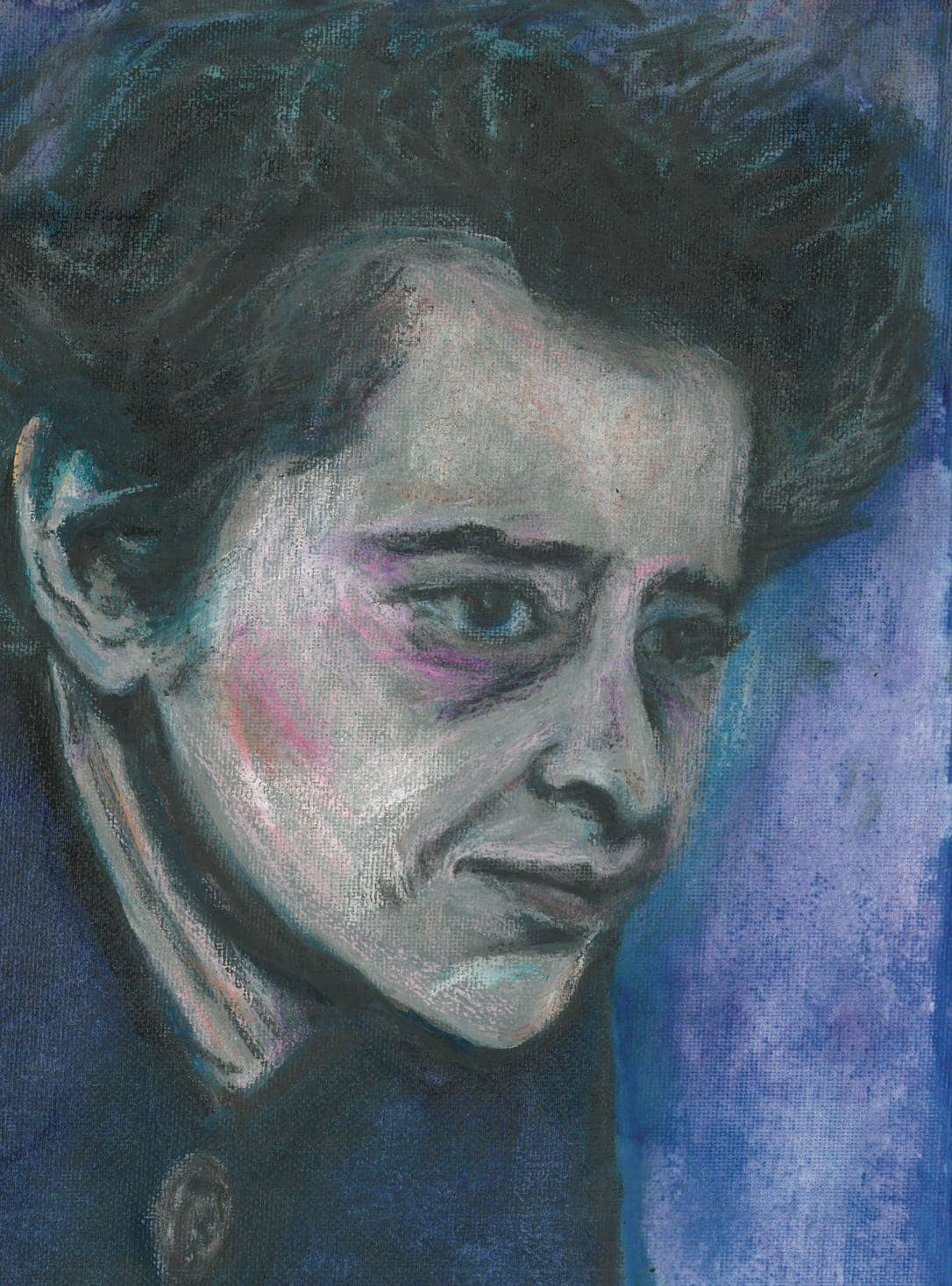
“I am sorry, but I have to object. I don’t belong to the circle of philosophers. My profession, if you can call it that, is that of political theory.” Such was Hannah Arendt’s response to journalist Günter Gaus in a famous TV interview in 1964.
It seems somewhat odd that Johanna Cohn Arendt was at such pains to distance herself from the subject she studied at the Universities of Marburg and Heidelberg. In German universities, she later wrote, “epistemology, aesthetics, ethics, logic, and the like were not so much communicated as drowned in an ocean of boredom” (Thinking Without a Banister, p.420, 2018). Yet, despite the dullness of academic life, she gained a doctorate on the unlikely subject of Saint Augustine and the concept of love. She was also the first woman to teach philosophy at Princeton University. Further, her last, incomplete, work, The Life of the Mind (published posthumously in 1978), was an analysis of the phenomena of thinking, willing, and judging, and was full of philosophical observations; for instance, that “Clichés, stock phrases, adherence to conventional, standardized codes of expression and conduct have the socially recognized function of protecting us against reality, that is, against the claim on our thinking attention that all events and facts make by virtue of their existence” (p.4). Yet despite a stellar publishing career, and the glittering accolades that went with it (for example, she became a member of the American Academy of Arts and Letters in 1964), she refused offers of academic positions. She preferred to be the senior editor of a publishing house, and a freelance writer.
Denne historien er fra April/May 2021-utgaven av Philosophy Now.
Start din 7-dagers gratis prøveperiode på Magzter GOLD for å få tilgang til tusenvis av utvalgte premiumhistorier og 9000+ magasiner og aviser.
Allerede abonnent ? Logg på
Denne historien er fra April/May 2021-utgaven av Philosophy Now.
Start din 7-dagers gratis prøveperiode på Magzter GOLD for å få tilgang til tusenvis av utvalgte premiumhistorier og 9000+ magasiner og aviser.
Allerede abonnent? Logg på

Metaphors & Creativity
Ignacio Gonzalez-Martinez has a flash of inspiration about the role metaphors play in creative thought.

Medieval Islam & the Nature of God
Musa Mumtaz meditates on two maverick medieval Muslim metaphysicians.

Robert Stern
talks with AmirAli Maleki about philosophy in general, and Kant and Hegel in particular.

Volney (1757-1820)
John P. Irish travels the path of a revolutionary mind.

IT'S A WONDERFUL LIFE
Becky Lee Meadows considers questions of guilt, innocence, and despair in this classic Christmas movie.

"I refute it thus"
Raymond Tallis kicks immaterialism into touch.

Cave Girl Principles
Larry Chan takes us back to the dawn of thought.

A God of Limited Power
Philip Goff grasps hold of the problem of evil and comes up with a novel solution.

A Critique of Pure Atheism
Andrew Likoudis questions the basis of some popular atheist arguments.

Exploring Atheism
Amrit Pathak gives us a run-down of the foundations of modern atheism.